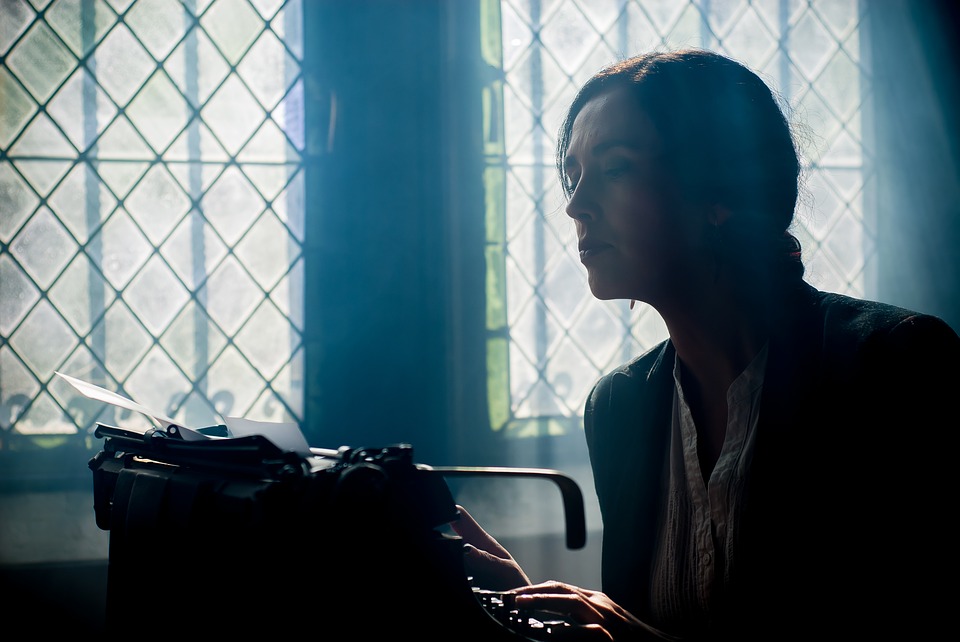A Screenwriter’s Survival Guide To Hollywood - Part Two
In case you missed part one: https://steemit.com/writing/@thegridzom/a-screenwriter-s-survival-guide-to-hollywood-part-one
Contests
So now what?
Throughout the writing process, I spent my non-writing time researching contests to which I could submit my script. I knew since I didn’t have any local places to actively get feedback, that entering my script into a handful of TV writing contests would possibly give me enough of a grade or feedback as to whether I was anywhere close to knowing what I was doing.
So, I went online and found moviebytes.com as a great resource. They listed every contest in existence by genres with links and a grading system. So, I found four contests that I was interested in submitting scripts to.
The fees were all around the same price, anywhere from $25-$50, with increases closer to the final deadlines. I also decided to submit one of my dreadful shorts to a shorts contest, which I found. During the next few months, I went back to working on a novel, and made the decision to rewrite it into a one-hour drama pilot, since I had caught the TV writing bug.

Over the summer, I began to find out the results of my contest submissions. The dreadful short that I submitted actually made it into the first round. I was elated but that was only the beginning. My TV show pilot made it into the semi-finals of TVWriter.com’s “Spec Scriptacular” (which I believe is no longer for original shows). You can imagine what this did for my writing confidence. I began chanting an obscure Gilmore Girl’s reference, “I’m in escrow” pronounced “es-ca-row” by Michael DeLouise’s character on the show. He was just so goofy and happy, that I had to steal it. Anyway, sorry for the tangent but I was excited and this was just what I needed to keep my energy level up to continue learning the craft and writing scripts that I knew might not ever see the light of a film projector.
A few more weeks went by and to make a long story short, I finished in the contest as a Finalist, and as a Semi-finalist in “Scriptapalooza TV” and as a Quarterfinalist in the “Fade-In Online” contest. The fourth contest was bust and I don’t recall the name. So I now had fuel to go to the next level. Realizing again that getting a TV writing job in Central Florida was probably not going to happen especially for the level I was in my “hobby” I decided to query production companies, I bought the “Hollywood Creative Directory” hcdonline.com, which called it quits at the end of 2011, but may return. Who knows? I also did internet searches for every “scripts wanted” sites I could find. Although many of the production companies advertise online and small-time, I was too, so my logic was that I needed to start somewhere. And I did.
Using my contest “placings” as fuel I my pilot optioned within 3 months. “I’m in escarow” could once again be heard through the streets of my neighborhood.
So, when anyone says that contests are not worth your time and money, I have to disagree. A lot of people say that contest winners are “the best of the worst”, and I don’t get this either. It’s such a black and white statement and in this business, there is way too much gray to even consider such rhetoric.
My question to those people is how does a writer, who is not working professionally yet, get his or her writing out there and noticed? Well, uh… um… Yeah, what was that?
The point is that you learn a lot along the way and if you choose a contest that is known for giving back good notes, then maybe you should consider adding that on to your submission cost. But be careful because not all readers at all contests should be giving notes.
Doing It Myself – Producing
So by the fall of 2005, I had met another aspiring filmmaker, Amanda Thornsberry and we began talking about how much we would like to make films and TV shows. And then I think I may have shocked her just a little when I told her we would be in production in a few short months and that she was going to direct whatever it was going to be, while I acted as the writer/producer.
Yeah it had reached the point where I wanted… No, I needed to see how my writing translated to the screen.
So, I started writing a short and wrote it around a location, I knew I could get. A house. If you try to attempt anything bigger than that your first time out, you better have some great connections for locations, or else you may never get it done. Within a month, I had a script and now the challenge of putting together everything else was at hand.
I had no idea it would be difficult. Since I didn’t go to film school, I had to rely on the Internet and the yellow pages to find everything.
The biggest challenge in my area of the country was finding the equipment to rent. It was impossible to rent anything that wasn’t either for big time, multi-million dollar projects, for which you’d need to show proof of insurance, etc. or on the opposite end of the production spectrum, equipment that was so far from professional, and outdated that it smelled of the media department of the local elementary school.
I suppose, I could’ve just bought a consumer grade video camera at a place like Best Buy, but for some reason, I believed that this project would not be my last.
I decided to buy one of the top pro-consumer minidv camera at the time which was the Panasonic 100B with 24p, so that our video would look more like film. We had decided that we now wanted more than just the experiment, we now wanted recognition and an IMDB credit, which is if you don’t already know, the “Internet Movie Data Base” and measures filmmaker/actor/film/tv success with an actual “starmeter” or “moviemeter”. So the final product needed to be good enough to submit to film festivals, because that would be our way in.
I continued my research and ordered a camera, microphone, lights and editing software. We fine-tuned the script, which clocked in around 12 pages. It was way too long, but what did we know?
I recruited friends to help with the production, until we had our six cast members. Again, way too many for a first time production, but somehow knocked it out in one day with an experienced DP, friends running the lights providing the location and doubling as cast and crew.
Since we didn’t want to shoot for a second-day, we zipped through the script and didn’t get all the shots, we wanted but it was a lesson learned.
Since my director, Amanda came from out of town to this project we only had a couple of days to edit the project. The software, I bought was Sony Vegas 6, and we learned how to use the program together as we edited the project on my laptop. What we did was totally against industry standards, but I wasn’t sure if I wanted to invest in a MAC or Final Cut Pro, because I might hate editing.
By the end of the long weekend, Amanda and I had a rough cut of our short film “Moving Out!” about a lesbian couple, who had just broken up must live together until the sale of their home. We were then soon told that it was the very first lesbian content film, which was not a student film to be produced in Orlando, Florida. Who knew?
The short stars musician, Linda Nunez in her acting debut. At the time, Linda had just released her critically acclaimed indie CD, “Cry Mercy”. And her song, “That’s Where I Went Wrong” shared so many similarities with our film, that we used it as our sound track. I have since used several other unsigned artists music in subsequent projects.
So, I took my time fine-tuning the short, after Amanda went back to Nashville, and during that time found a handful of film festivals to where we could submit the film.
Once I got started with my film festival research, I realized that I was in a niche’ market, where it’s possible to quickly develop a fanbase hungry for this type of content. So, no matter what niche’/genre you’re in, the way I navigated through all of this will work for you as well unless you are completely into writing mainstream content, where the competition is much tougher.
After doing the festival circuit with Moving Out with some success, I decided to write and direct a couple of shorts, while planning my big jump to Hollywood. During this time, I had been in contact with Deborah Stewart, an actress in Los Angeles, who had just read one of my TV pilots “The Seer” and totally fell in love with the story. I was suddenly being tugged harder towards the West. I always knew I wanted to be in LA and work with professional crews and actors.
Once I knew, I was going I began my exit strategy. I started going through all of my belongings and did a major clean out, because one thing I knew already was how high rents are in Los Angeles and becoming a minimalist was almost a necessity.
Copyright 2018 Linda Andersson/The Grid Zom, LLC

You got a 2.37% upvote from @postpromoter courtesy of @thegridzom!
Want to promote your posts too? Check out the Steem Bot Tracker website for more info. If you would like to support the development of @postpromoter and the bot tracker please vote for @yabapmatt for witness!
This post has received a 9.02 % upvote from @boomerang.